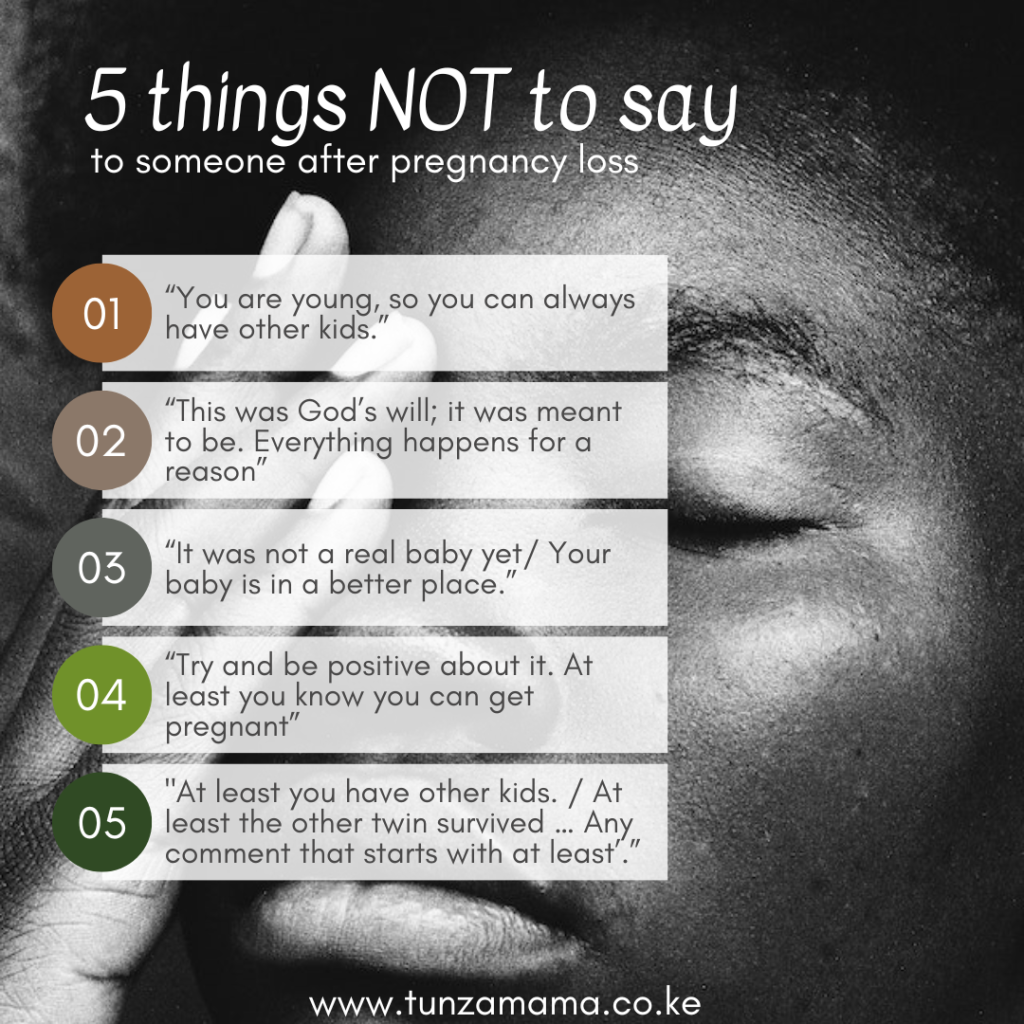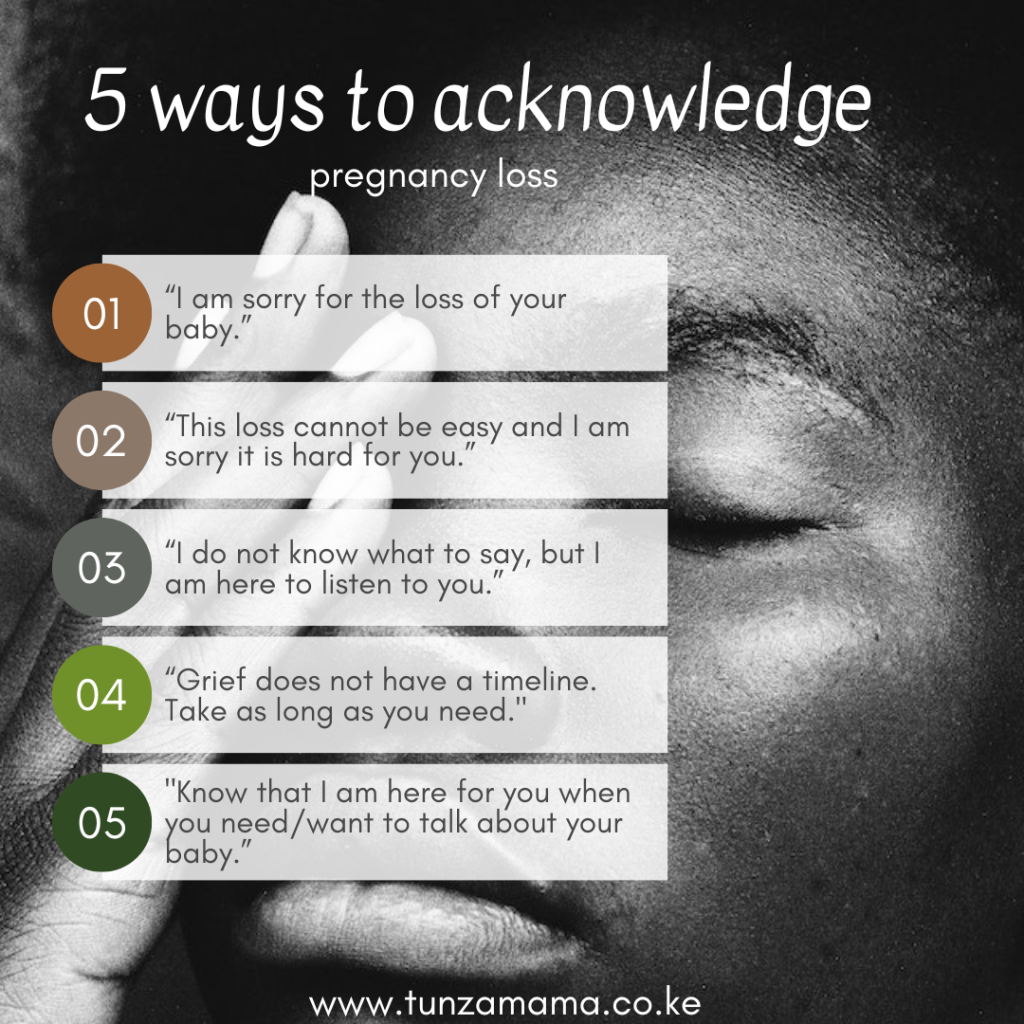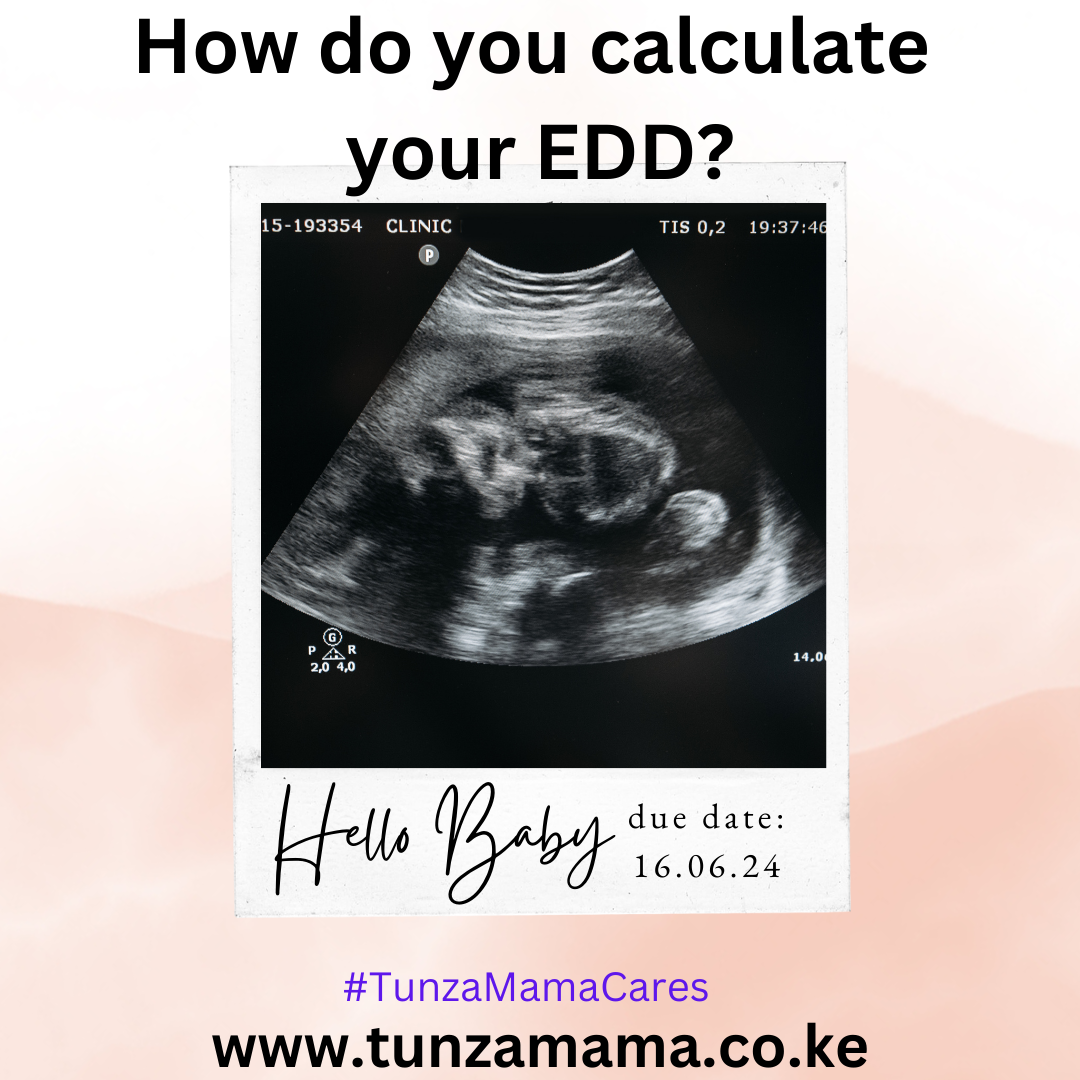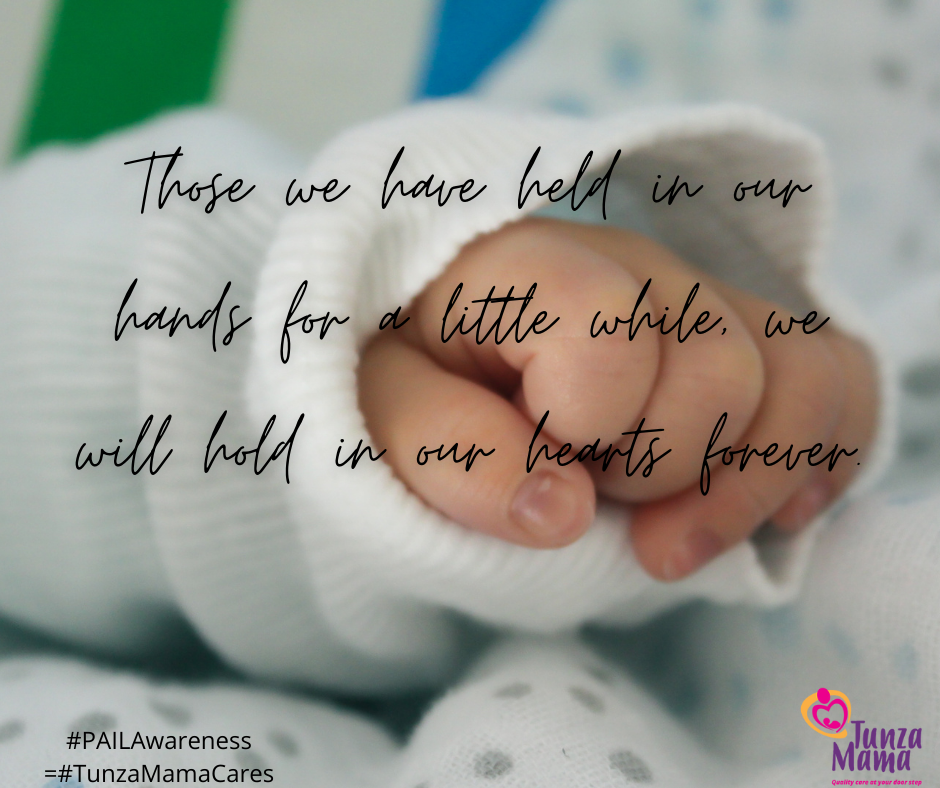Pregnancy loss is a common occurrence, but this does not make it an easy experience for affected women. Statistics show that about 20% of pregnant women will experience pregnancy loss. This translates to 1 in every 4 women who are expecting. How then is it possible to offer support for a woman who has gone through pregnancy loss? What are some of the things you can say (and those that you should not) say to help affected women get through this devastating experience? In this post, we share practical ways to help your friend after pregnancy loss and the importance of this support.
Helping someone after pregnancy loss
One of the most important things to realize is that, after someone experiences pregnancy loss, they are usually in a state of shock. Additionally, they may not know what they need. As a friend looking to offer support, it is crucial to recognize their loss and encourage them to grieve however they do. Grief is a personal and intimate journey. There is no right or wrong way to grieve. Whatever the person feels needs to be validated.
For family and friends, this is easier said than done. Many people feel helpless when someone who is close to them goes through pregnancy loss. Part of the reason for this is that the woman and her partner cannot prevent it from happening. When it does happen, the most common way of dealing is not to talk about it. Societal norms often lead families and friends to think that talking about pregnancy loss is uncomfortable for the women affected. But this could not be further from the truth. Not having conversations around the loss only prolongs the period of grieving and makes it very difficult for the woman to move on.

In light of this, helping a woman who has gone through pregnancy loss does not mean that you need to stop the pain. Instead, it means to be present to help ease the transition.
Wondering what to say? Here is how you can help
Women who have experienced pregnancy loss will often turn to their family, friends and professionals within their circles. They may, however, lack the words to define the kind of support that they require. This usually leads family members and friends to feel helpless for the fear of saying the wrong thing. Sometimes, it makes the support system want to steer clear of dealing with the loss or wishing that the affected parents would not share their loss and grief. There are several ways that you can offer support for your grieving friend.
- Acknowledge their loss
Many women feel alone after suffering pregnancy loss. This is often accompanied by confusion around the myriad of emotions that they feel. For this reason, it is important to acknowledge this loss and provide a safe space for someone to grieve. According to the American Pregnancy Association, a safe space allows the grieving mother to work through the complex emotions of grief and to begin healing. It also helps to provide a listening ear, particularly for women who may feel the need to share their story.
Sometimes, even with the best intentions, it is possible to make comments that invalidate pregnancy loss. Typically, these comments include those that try to rationalize/minimize the loss or even make comparisons. Below are some of the things that you should NOT say:

“You are young, so you can always have other kids.”
“This was God’s will; it was meant to be. Everything happens for a reason”
“It was not a real baby yet/ Your baby is in a better place.”
“Try and be positive about it.”
“At least you know you can get pregnant. / At least you have other kids. / At least the other twin survived … Any comment that starts with ‘at least’.“
Some of the things that you can say to acknowledge loss instead include:
“I am sorry for the loss of your baby.”
“This loss cannot be easy and I am sorry it is hard for you.”
“I do not know what to say, but I am here to listen to you.”
“Grief does not have a timeline. Take as long as you need. Know that I am here for you when you need/want to talk about your baby.”

2. Keep in touch with her.
Keeping in touch makes the grief after pregnancy loss feel less isolating. It helps to be physically present as outlined above. Sometimes this is not possible, so it helps to call or text depending on what the grieving mother prefers. For the most part, making contact on email or social media platforms may feel impersonal. Additionally, moms who have just suffered pregnancy loss may keep away from social media platforms to give themselves time to grieve without the constant buzzing of phone notifications. Remember to acknowledge her loss, even on phone.
3. Ask for the baby’s name and use it.
It may be hard to request for the baby’s name because more often than not, people think that is upsetting for the mother and her family. This is important because it creates a personal connection to the child; it humanizes the baby who was lost. Using the baby’s name also allows the parents to share the hopes and dreams they had for the baby as part of the healing process.
4. Offer practical help around the house
Grieving is emotionally and physically exhausting, and most mothers will feel the need to rest and take some time off. At the same time, it is likely that the family will have people visiting to pass their condolences. This may be overwhelming for a mother who just lost her baby. One of the ways in which you can help is to offer practical help around the house. These may include:
- Breaking the news to family and friends (with the consent of the parents). Sharing news of the pregnancy loss over and over again can be very overwhelming for the grieving parents. Offering to pass the information alleviates this stress.
- Helping with house chores such as cooking, clearing the sink or folding laundry.
- Offering to care for older children, help with the school run, checking homework etc
- Run errands for the family – buy groceries, pay bills, pick the mail etc
5. Help collect memorabilia to honor the baby’s memory
With pregnancy loss, it may not be possible to have closure during a funeral service. This usually happens when a woman experiences an early miscarriage. It helps, however, to have tangible memorabilia to remember and honor the baby’s life. This may include a box with ultrasound pictures, a pair of booties that was intended for the newborn or any other baby item with sentimental value. If possible, the grieving parents are also encouraged to mark the baby’s final resting place. It may be helpful to send a card in the weeks or months that follow too. It helps the parents know their baby is not forgotten.
6. Share your story
If you have experienced pregnancy loss, you may consider sharing your story so that the grieving mother may know that she is not alone. This makes her experience less isolated, and provides a connection between both women. Note however, that it is important to allow conversation and to listen to the grieving mom.
In summary, people grieve differently after a pregnancy loss. Family and friends around the grieving parents may be at a loss of words. This makes it easy to say something insensitive, or the cliché comments that attempt to ‘fix the pain’. Today’s post provides practical ways to help your friend after pregnancy loss.




